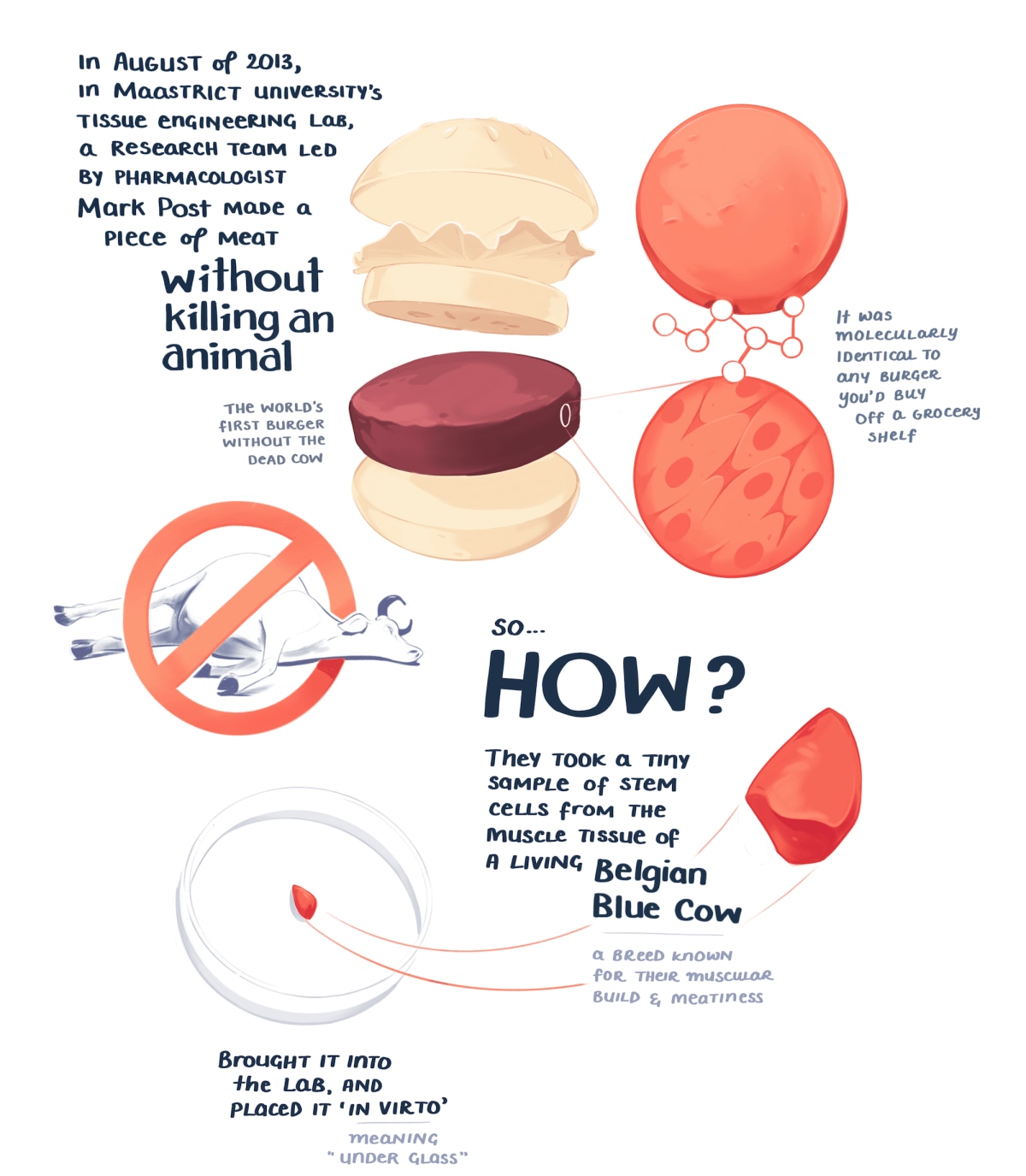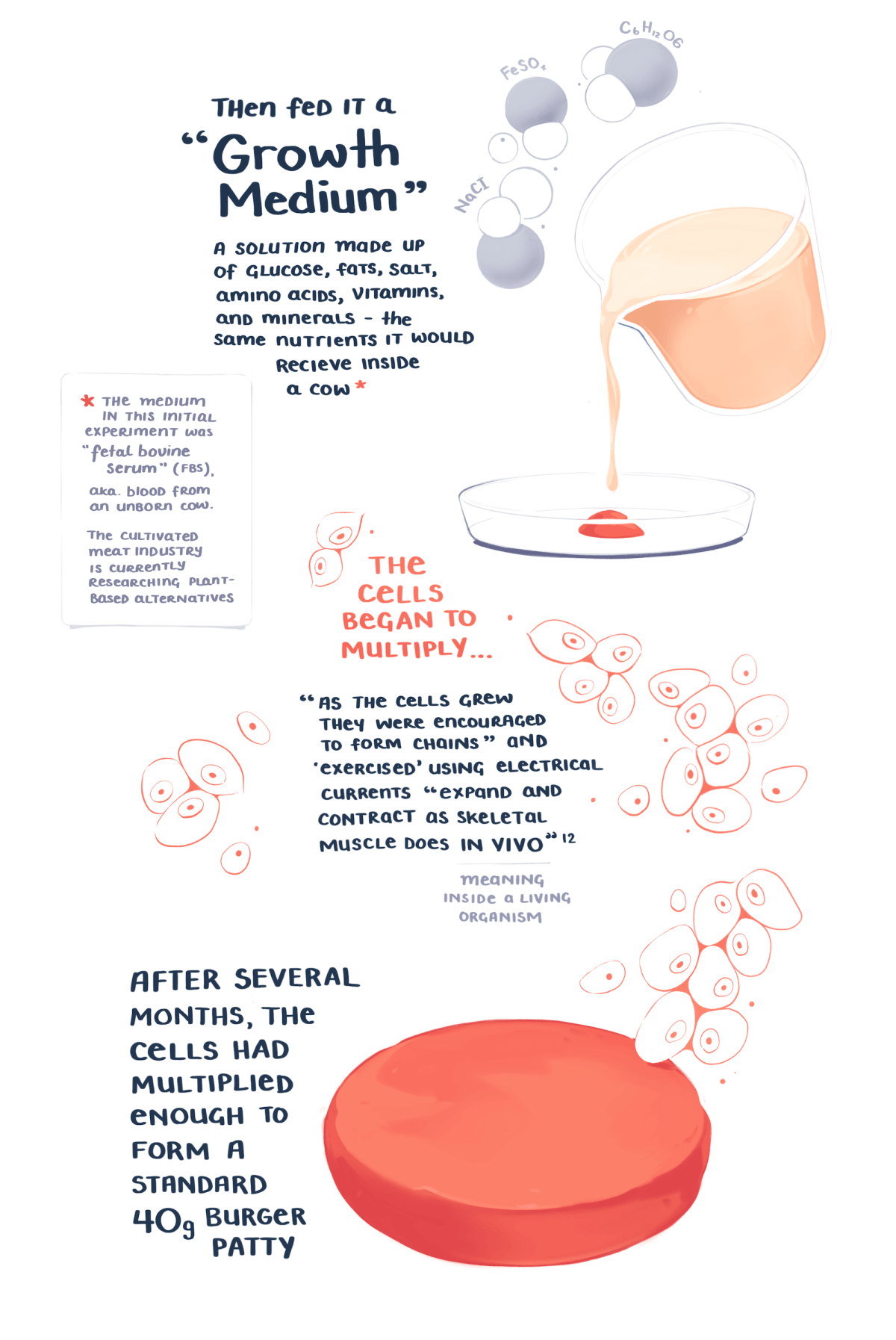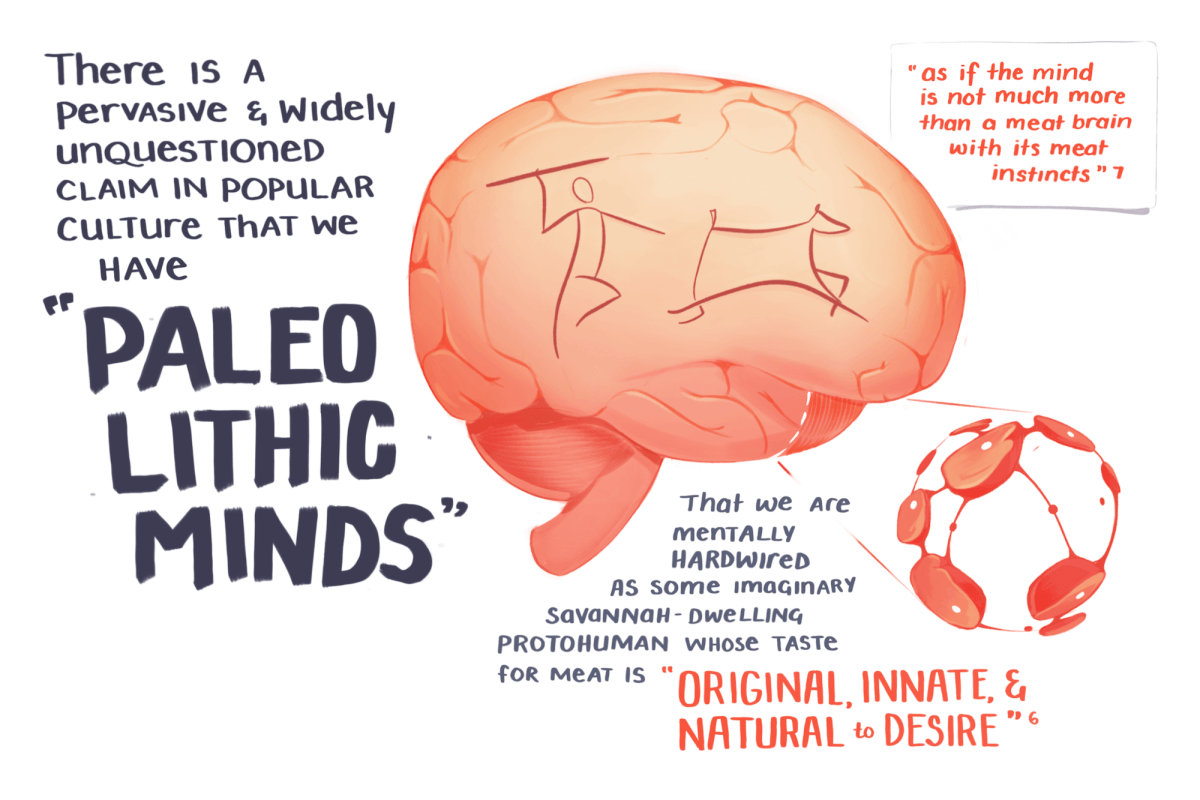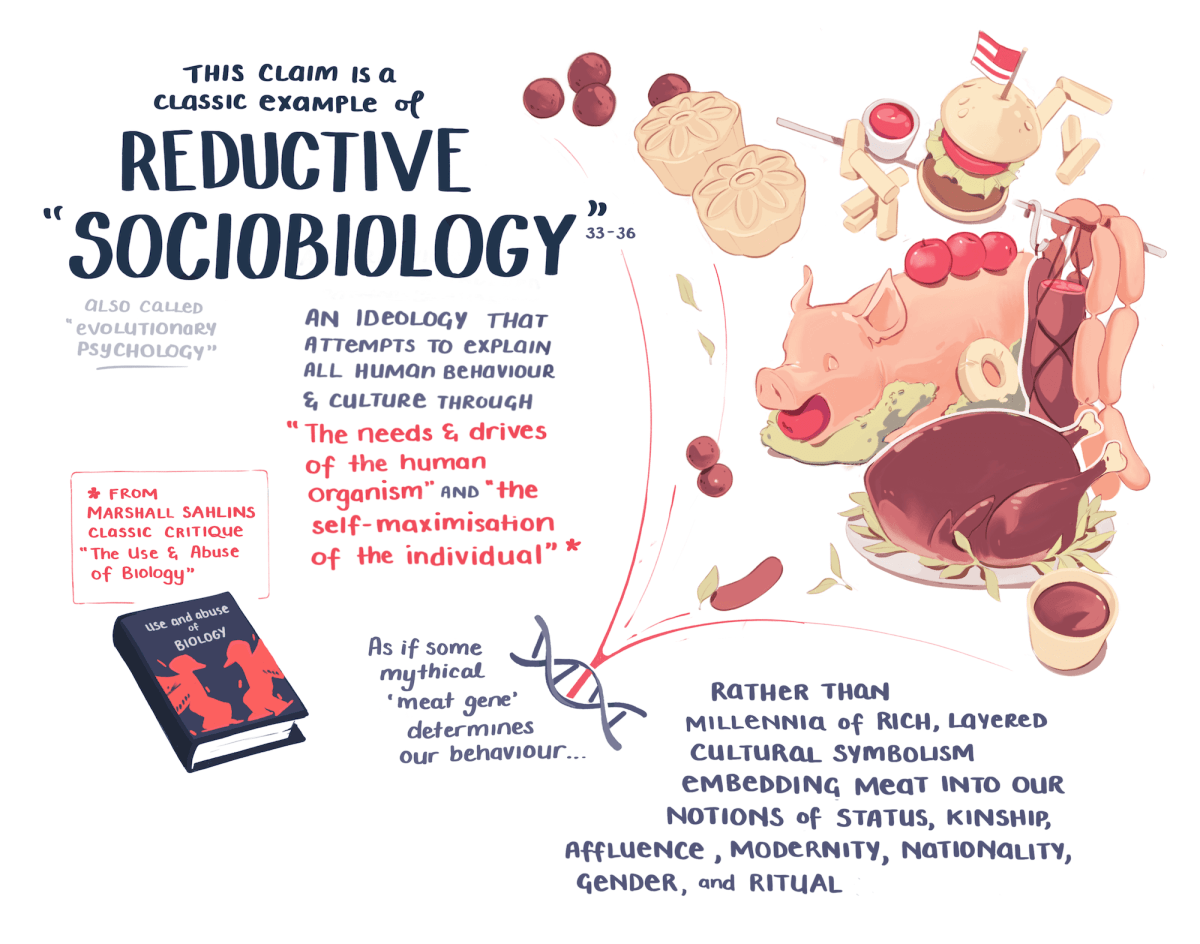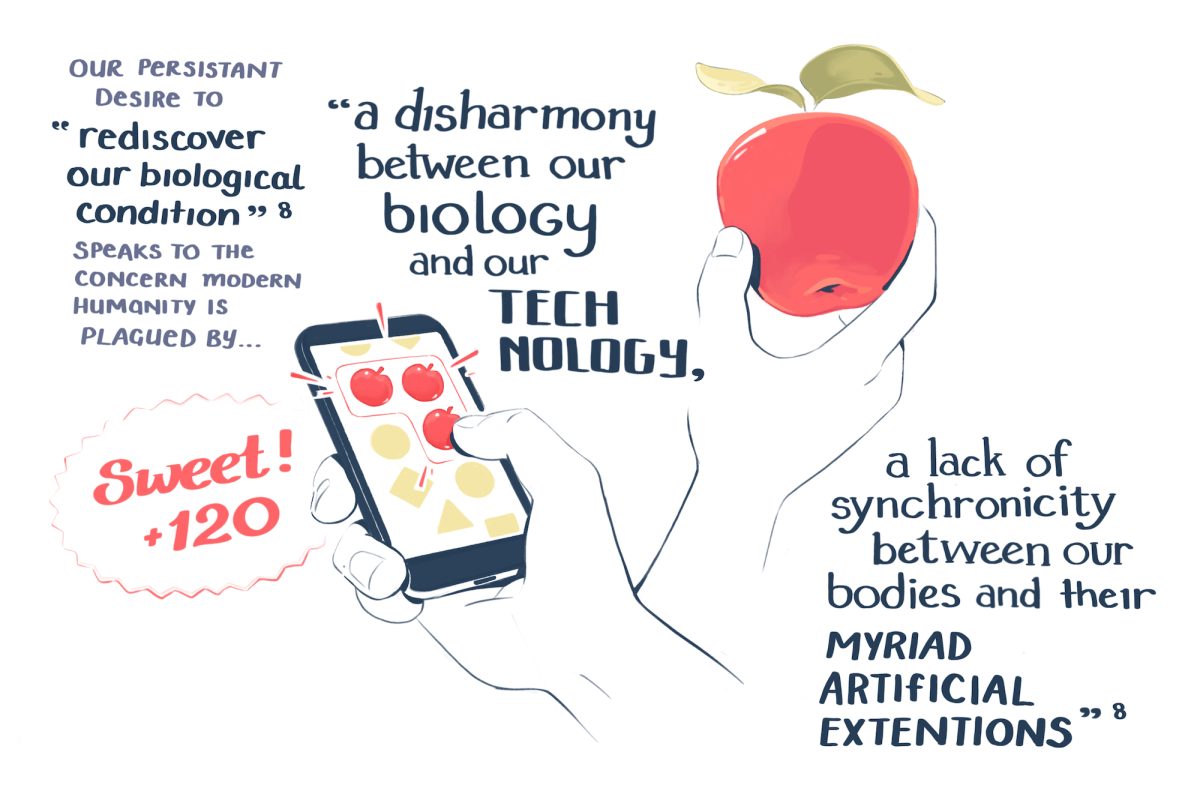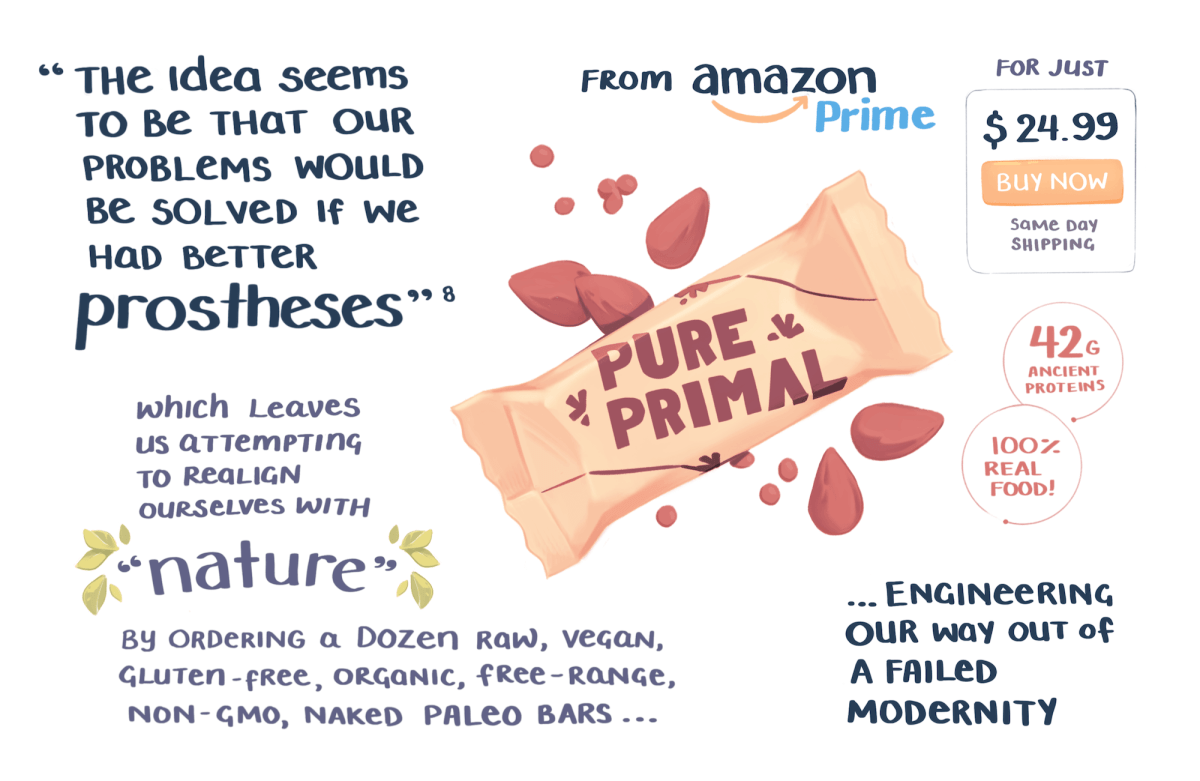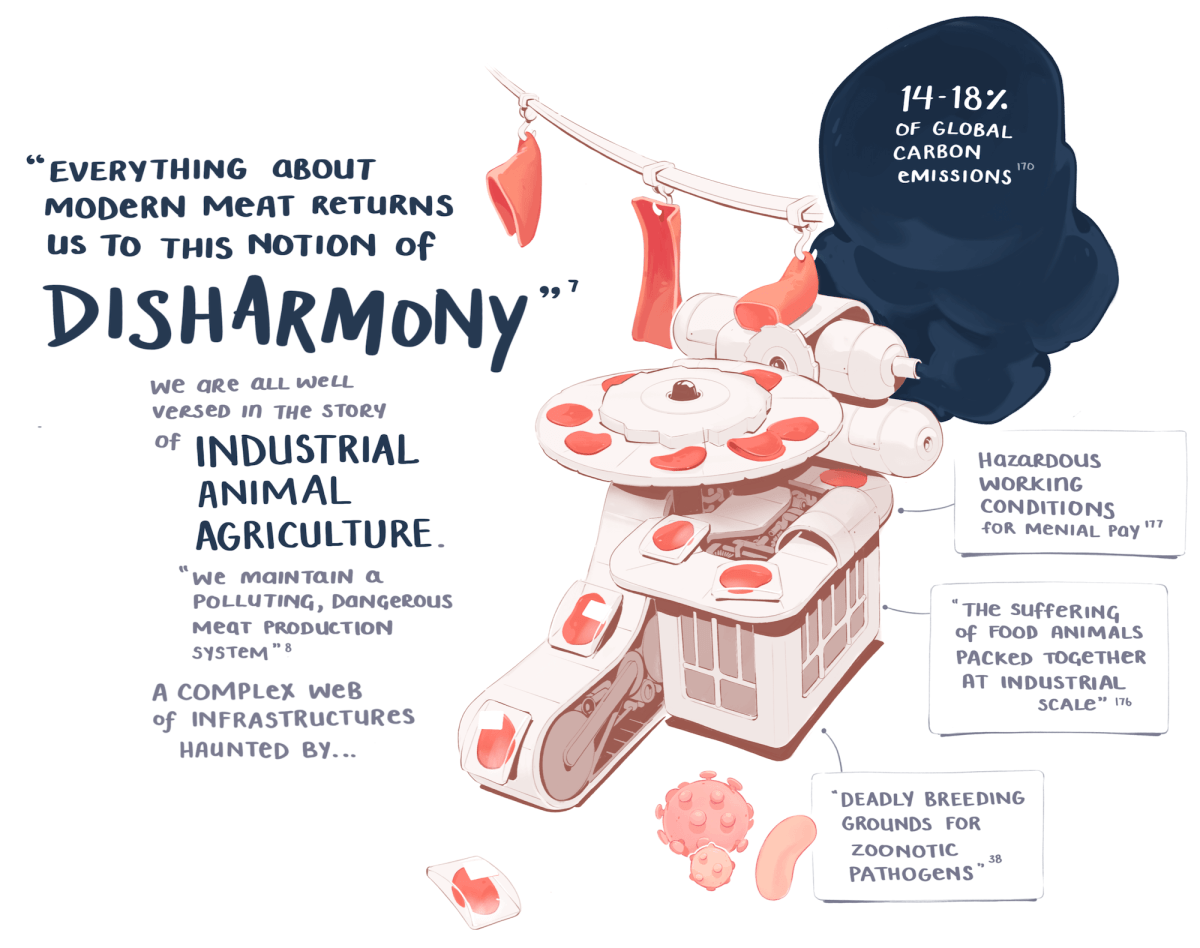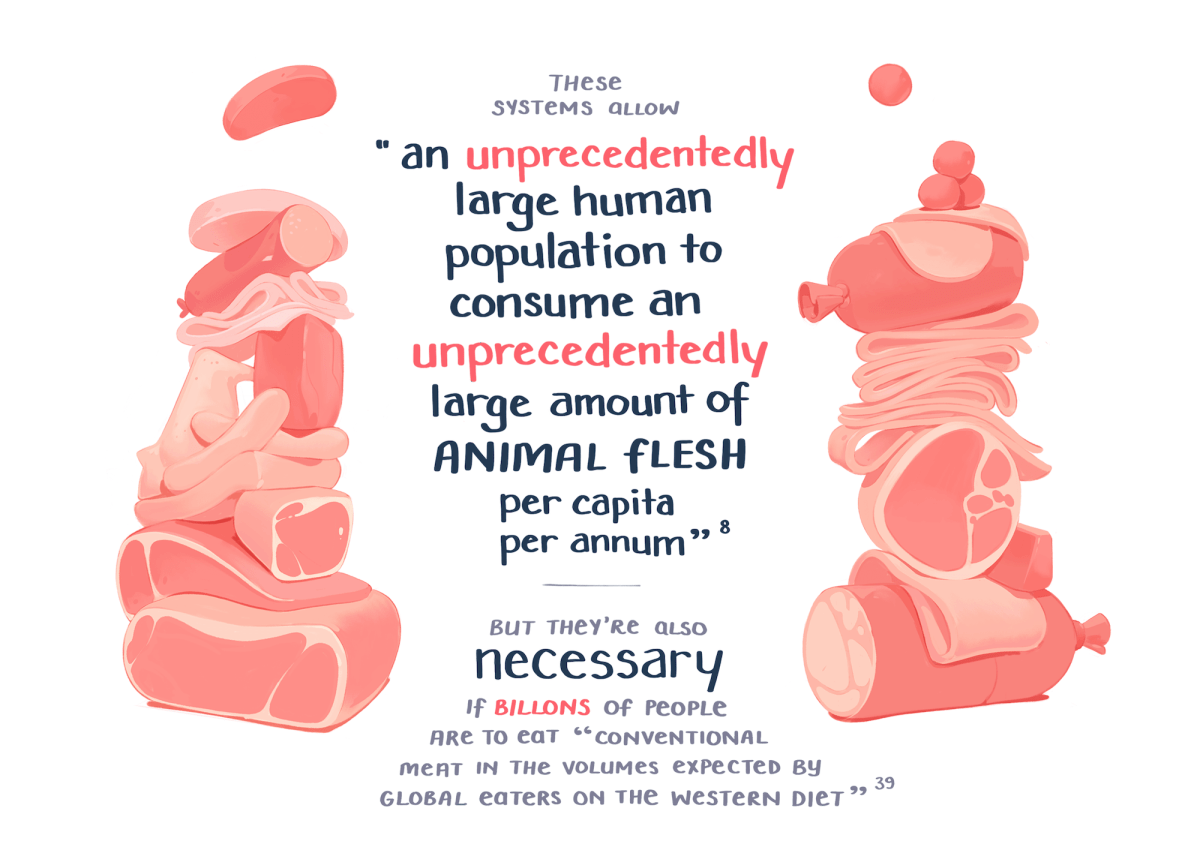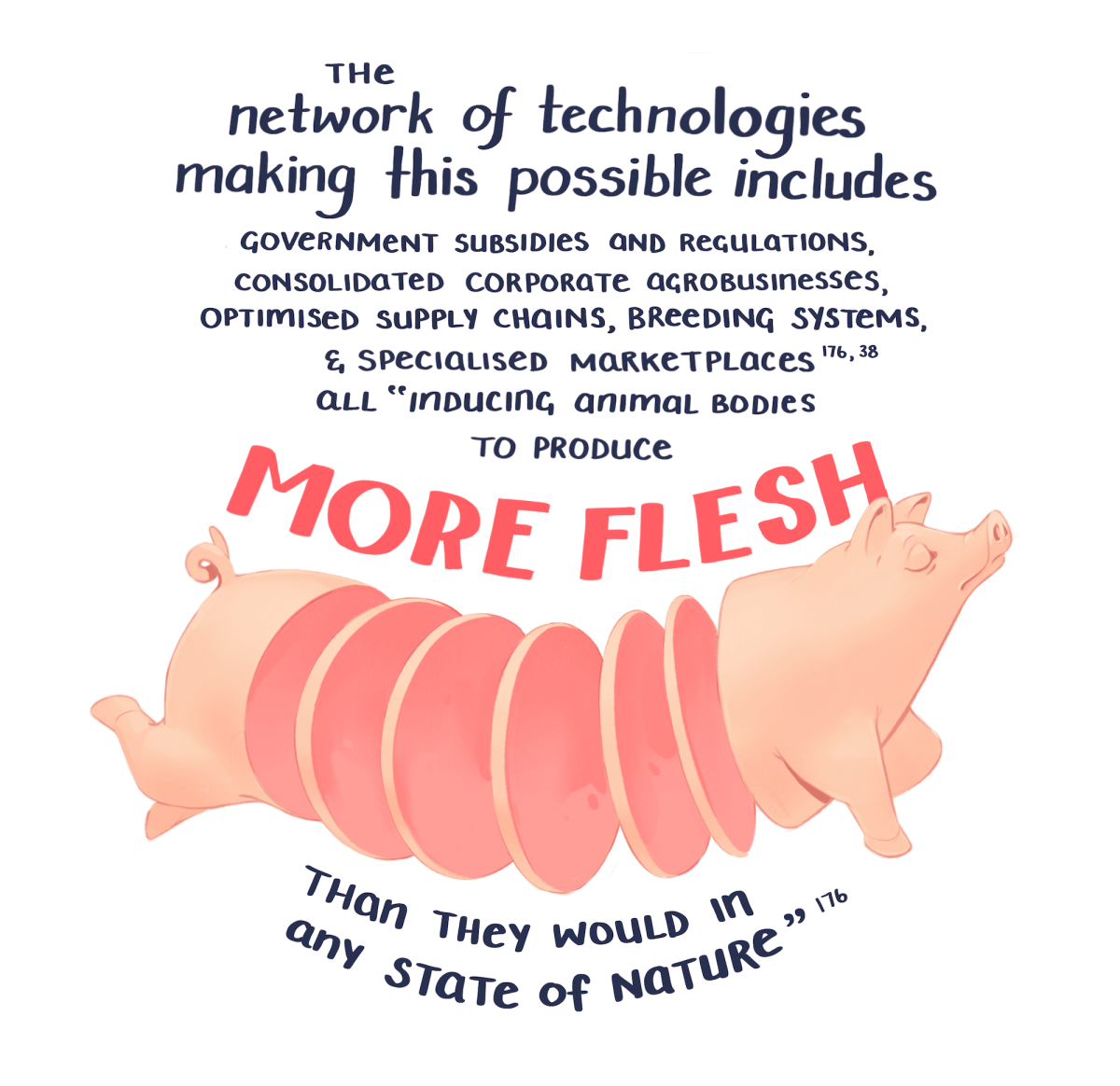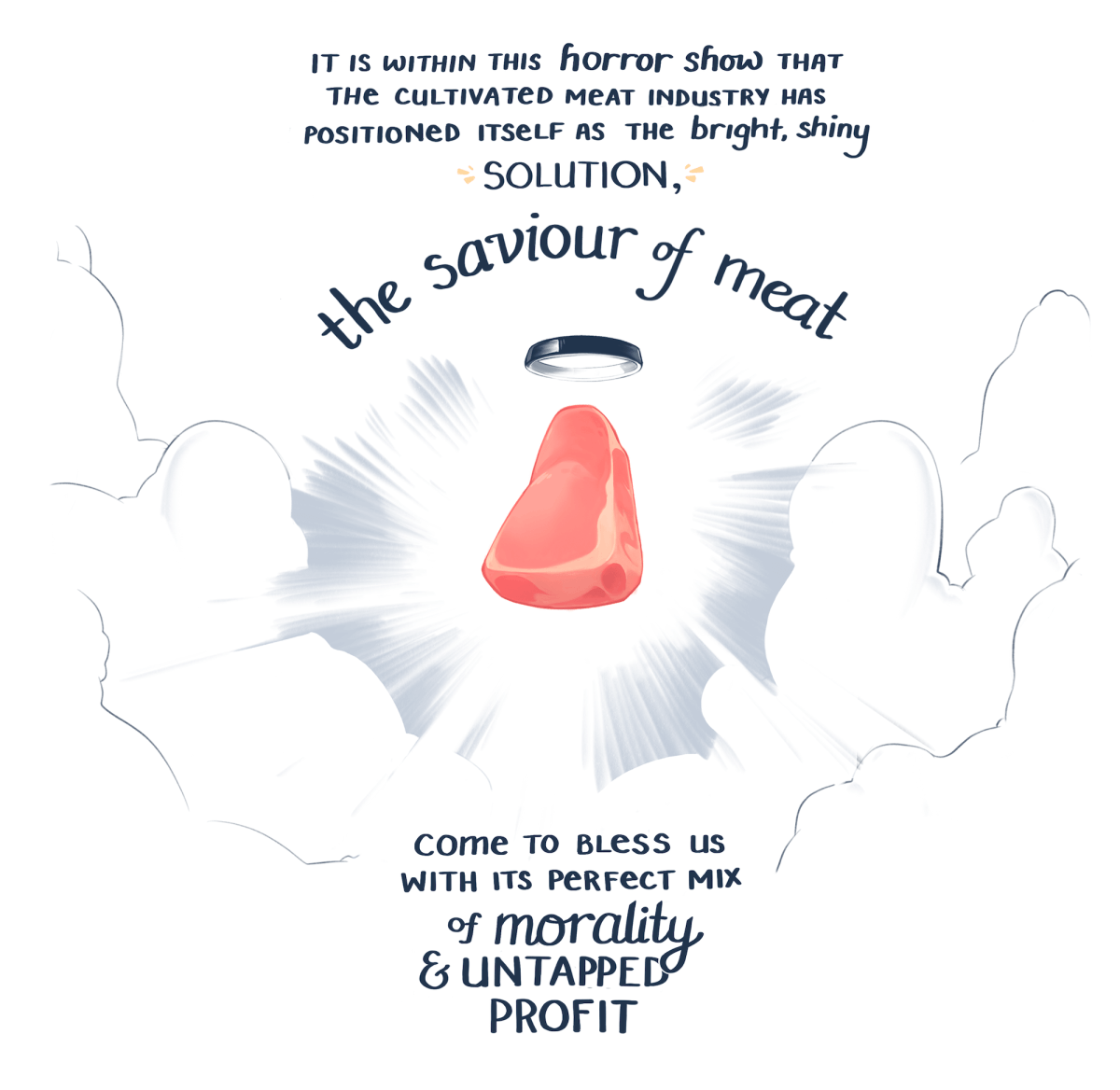This site spans the full array of my weirdo interests and niches. And cultured meat is certainly part of that equation. If you’ve never heard of “cultured meat”, this will be a great primer.
I spent the Christmas lull of 20197ya devouring Ben Wurgaft’s book ‘Meat Planet’. Needing an outlet for my over-enthusiasm for it, I started working through my notes and picking out the best themes and ideas to turn into a set of illustrated explorations.
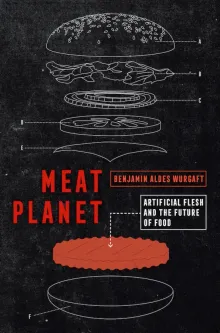
I’d been following the media hype around the promise of ‘cultivated meat’ since early 20179ya — mostly as a curious layperson who indulges in reading Silicon Valley techno-utopian gossip the way others watch Keeping Up with Ru Paul’s Real Housewives of Love Island.
I was primarily drawn to the cultural implications of the idea.
Seen through an anthropological lens, cultivated meat prompts a series of fascinating questions;
- What do we mean by ‘natural’ and ‘unnatural’, ‘real’ and ‘fake’?
- Why do some people react to the idea with disgust and revulsion? What makes us culturally categorise things as ‘icky’ and ‘gross’?
- How do we define the categorical boundaries and rules around food, and how malleable is that framework?
Since most of the discussion was happening on Hacker News and Twitter (not usually founts of philosophical reflection), I didn’t expect anyone to meaningfully explore these questions.
The chatter instead orbited around short-term technological viability, or time-to-market, or IPO stock price speculations of hypothetical products.
I was then thrilled to see an anthropologist & historian step into the ring among all the TED-talky-thought-leadering-VCs.
Ben approached the topic through a series of wide-scale historical, cultural, and sociopolitical questions on the nature of what meat is without the dead cow involved.
He uses the promise of animal-free meat as a jumping off point into deeper historical trends about scientific ideologies, Calvinistic Capitalism, paleolithic nostalgia Paleolithic Nostalgia
Longing for the paleolithic past in the Anthropocene and the presumed division of nature and culture Natureculture, Moral Purity, and Cultural Boundaries
Why there is nothing natural about the idea of 'nature' .
Ben’s neutrality is a large part of what makes this a good read - he’s not for or against it. He’s curious.
His agenda is to make you think on a very different level than the mountain of Wired articles on the topic. And he’s asking way better questions than when can I buy it?, will it give me cancer?, and what will we do with all the cows??
Reading this book was akin to having a far more intelligent and academically informed companion take my half-formed pedestrian observations and flesh them out into high-definition, coherent scenes.
The illustrations below are not a comprehensive summary of the book. They’re selected snippets filtered through my own research interests and curiosities. With a good dose of extra commentary layered on top. If they pique your interest, I promise there’s plenty more meat in the actual book 🍖
